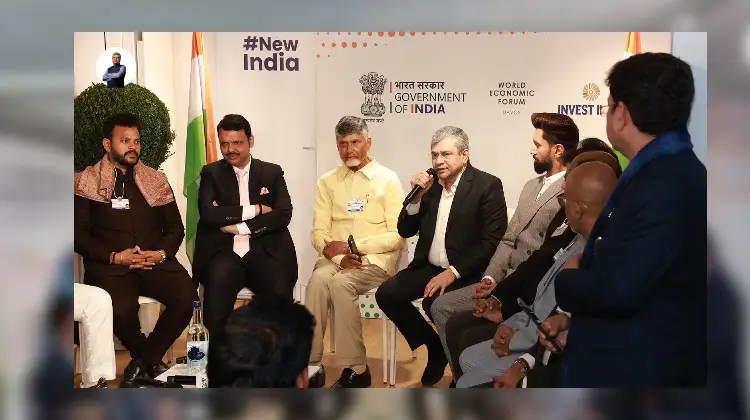In an era of rapid innovation and global challenges, future-ready conversations have become essential. Whether it’s tackling climate change, advancing AI, or restructuring global supply chains, dialogue is the catalyst for progress. India, with its expanding global influence, has transitioned from being just a participant in these conversations to a leader shaping them.
Dr. Aishwarya Pandit Sharma, Chairperson of ITV Foundation, highlights how India is now bridging borders, fostering inclusive partnerships, and leading dialogues that drive meaningful global change. Public forums, she notes, are pivotal in fostering cross-border collaboration, helping shape policies that impact everything from economic resilience to technological advancement.
India has steadily evolved into a thought leader in international discourse. With its dynamic economy, technological prowess, and commitment to sustainable development, the country is at the forefront of global dialogues. Major summits like the India Economic Summit, Bengaluru Tech Summit, and Vibrant Gujarat Global Summit have become critical spaces for conversations on trade, AI ethics, and green energy.
Platforms like NXT, envisioned as India’s equivalent of Davos, aim to further cement the country’s role in fostering transformative conversations. These forums serve not only as networking spaces but as incubators of policies and partnerships that can impact millions globally.
Global summits have long been engines for economic growth and innovation. Events like the G20 Summit, BRICS, and the World Economic Forum in Davos have demonstrated the power of collective dialogue. India’s NXT platform aspires to take this model further by merging traditional discussions with a World Fair-style exposition, allowing innovators to showcase cutting-edge solutions alongside policy debates.
This hybrid format bridges the gap between ideas and implementation, ensuring that dialogues don’t just stay within boardrooms but translate into real-world solutions. As the world navigates complex issues—from digital security to climate change—such multi-dimensional forums can play a key role in shaping future strategies.
The media remains a powerful tool in shaping public discourse. In an age where misinformation can influence geopolitics, the need for fact-based dialogue has never been greater. Events like the International Journalism Festival and Global Media Congress emphasize the media’s role in fostering transparent, balanced conversations.
Dr. Sharma highlights that informed societies make better decisions, underscoring the importance of media in empowering citizens to engage meaningfully in global issues.
At the heart of this conversation is NXT—a transformative platform designed to host high-impact dialogues that inspire real-world action. With its goal of becoming India’s answer to Davos, NXT emphasizes collaboration, innovation, and solution-driven discussions.
By blending policy conversations with tangible demonstrations of technology and innovation, NXT offers a space where decision-makers, innovators, and changemakers can co-create strategies for a resilient, connected, and sustainable future.
The future of global cooperation hinges on moving beyond mere discussions. Platforms like NXT have the potential to turn conversations into actionable strategies that address today’s most pressing challenges. India, with its growing global stature, is uniquely positioned to lead this shift.
As Dr. Sharma concludes, “The future is ours to build. Let’s shape it—together.” It’s a call to action for leaders, innovators, and citizens worldwide to engage, collaborate, and drive meaningful change.
Key Highlights:
- India is taking a leadership role in global dialogues, fostering inclusive, future-ready conversations.
- Public forums like NXT aim to bridge borders, blending policy discussions with breakthrough innovations.
- NXT aspires to be India’s version of Davos, focusing on action-oriented dialogue.
- The platform highlights India’s commitment to global collaboration, sustainability, and technological advancement.


